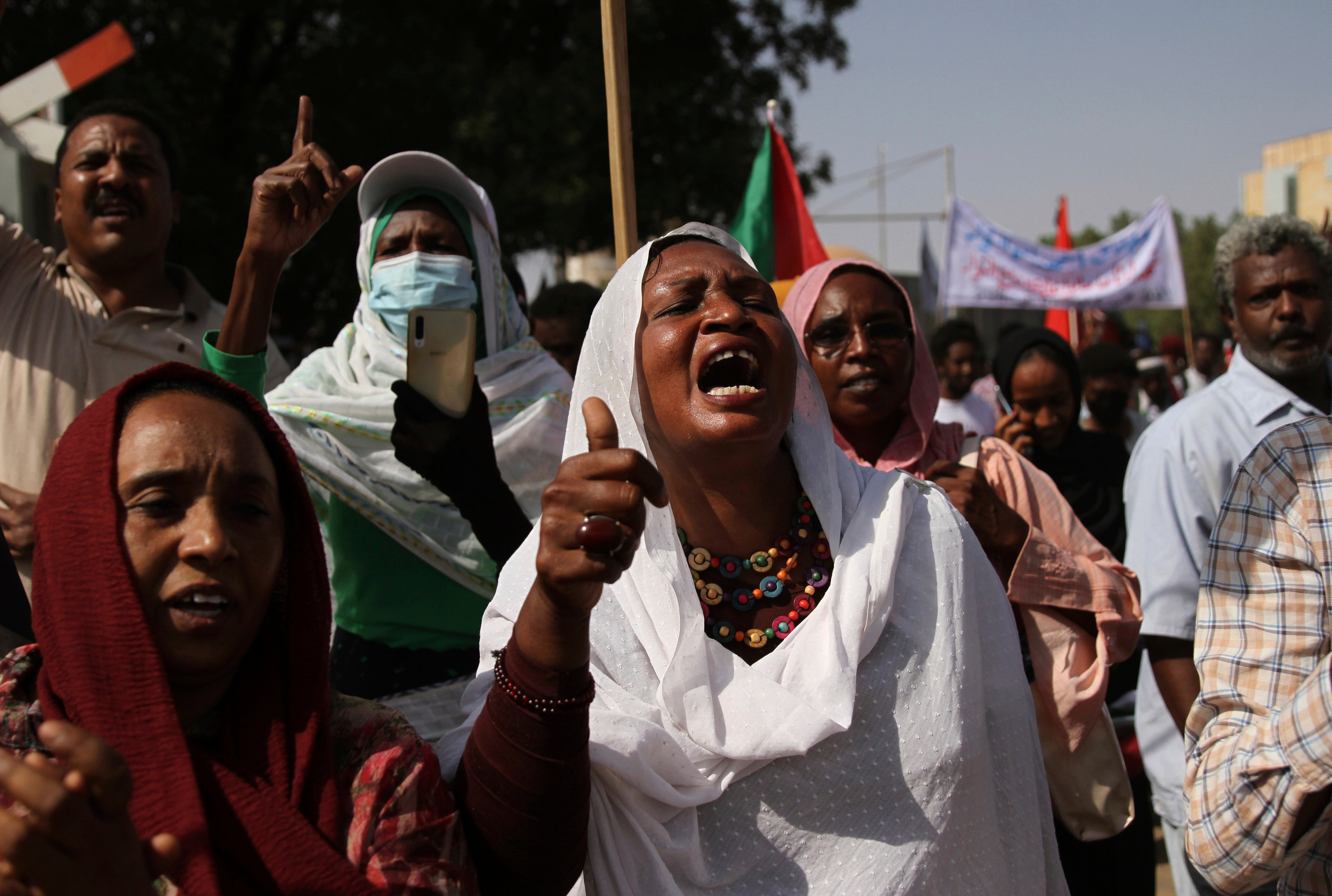Sudanese protesters demand civilian rule, want army out
Thousands of Sudanese have rallied in the capital of Khartoum against the country's military and demanding the formation of new transitional authorities that would exclusively consist of civilians

Your support helps us to tell the story
From reproductive rights to climate change to Big Tech, The Independent is on the ground when the story is developing. Whether it's investigating the financials of Elon Musk's pro-Trump PAC or producing our latest documentary, 'The A Word', which shines a light on the American women fighting for reproductive rights, we know how important it is to parse out the facts from the messaging.
At such a critical moment in US history, we need reporters on the ground. Your donation allows us to keep sending journalists to speak to both sides of the story.
The Independent is trusted by Americans across the entire political spectrum. And unlike many other quality news outlets, we choose not to lock Americans out of our reporting and analysis with paywalls. We believe quality journalism should be available to everyone, paid for by those who can afford it.
Your support makes all the difference.Thousands of Sudanese rallied in the capital of Khartoum on Thursday to demand an exclusively civilian transitional government and accusing the generals now in power of derailing its transition to democracy. Security forces fired tear gas as protesters neared a central street housing government headquarters.
Sudan has been ruled by an interim, joint civilian-military government since 2019. The military ousted longtime autocrat Omar al-Bashir in April that year, following four months of mass protests against his rule. Months after al-Bashir’s toppling, the ruling generals agreed to share power with civilians representing the protest movement.
“The objective of these marches is to protect Sudan’s democratic transition and there is no way to achieve that without ending any partnership with the military council,” said a statement issued by the Sudanese Professionals Association, which spearheaded the nationwide uprising that kicked off in December 2018 and culminated in al-Bashir’s ouster.
Tensions between the civilians and generals in the transitional government have increased since Sudan’s interim authorities last week said they foiled a coup attempt within the military. Officials blamed al-Bashir loyalists for the move.
Prime Minister Abdalla Hamdok the civilian face of the government, described the coup attempt as an effort to undermine Sudan’s democratic transition. The interim government has been under pressure to end wars with rebel groups as it seeks to rehabilitate the country’s battered economy, attract much-needed foreign aid and deliver the democracy it promised.
On Thursday, demonstrators waved Sudanese flags and chanted pro-democracy slogans. They accuse the military of dragging its feet on the transfer of power to civilians, purging state institutions of remnants of al-Bashir's regime and bringing to justice those responsible for the killing of dozens of protesters in June 2019, when security forces dispersed a sit-in outside the military headquarters in Khartoum.
In a scene reminiscent of the 2018 uprising, a train carried protesters from other Sudanese provinces to Khartoum. Train cars were packed, with demonstrators waving Sudanese flags from windows and making victory signs, while others rode on the rooftop of the slow-moving train.
The protesters were expected to march to the Republican Palace, the seat of the ruling Sovereign Council. The council was created by a power-sharing agreement signed in August 2019 by the military and pro-democracy activists. It consists of five military and six civilian members and is headed by Gen. Abdel-Fattah Burhan.
___
Elhennawy reported from Cairo Associated Press reporter Marwan Awad in Khartoum, Sudan, contributed to this report.